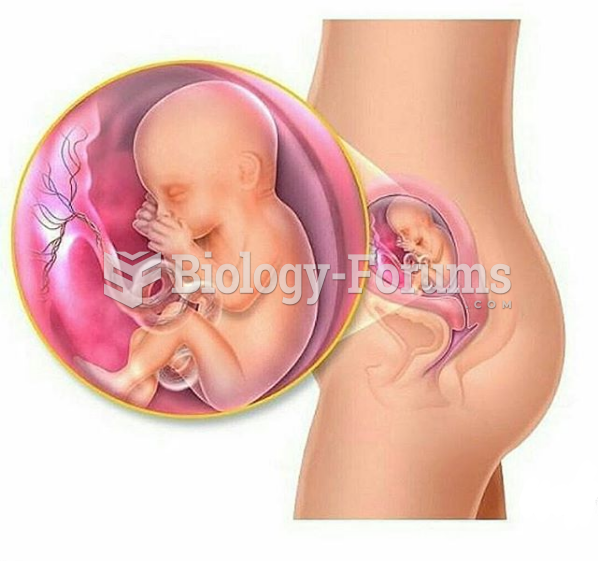|
|
|
There are 20 feet of blood vessels in each square inch of human skin.
Nitroglycerin is used to alleviate various heart-related conditions, and it is also the chief component of dynamite (but mixed in a solid clay base to stabilize it).
Drug abusers experience the following scenario: The pleasure given by their drug (or drugs) of choice is so strong that it is difficult to eradicate even after years of staying away from the substances involved. Certain triggers may cause a drug abuser to relapse. Research shows that long-term drug abuse results in significant changes in brain function that persist long after an individual stops using drugs. It is most important to realize that the same is true of not just illegal substances but alcohol and tobacco as well.
A seasonal flu vaccine is the best way to reduce the chances you will get seasonal influenza and spread it to others.
The first oral chemotherapy drug for colon cancer was approved by FDA in 2001.







